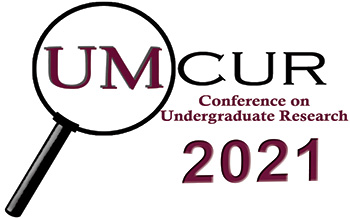Project Type
Presentation
Faculty Mentor’s Full Name
Laurie Minns
Faculty Mentor’s Department
Division of Biological Sciences
Abstract / Artist's Statement
Caregivers of GBM Need Support from Family and Friends
Abstract
Purpose Glioblastoma multiforme (GBM) is an aggressive and incurable form of brain cancer, both to the patient and the caregiver of the patient. GBM has a dismal medical prognosis for patients that area diagnosed with it. Caregivers struggle to maintain appropriate care to their patients due to the high stress job and often rely on the help of family and friends. Previous studies suggest longer life expectancy in GBM patients correlates with better caregiver mastery. This study aims to find ways and ideas for family members and friends to offer help to caregivers in need, as well as provide resources to said family members and friends.
Methods This study has been approved by the Institution Board Review of the University of Montana (IRB #224-19). 101 letters were received and analyzed from caregivers of patients with GBM giving their testimony of being a caregiver. All letters used in this study were letters with conformed consent. In order to determine how caregiver support impacted caregiver outlook, key words such as
“family,” “friend,” “son,” “daughter,” “mother,” and “father” were searched for in a qualitative analysis. Of the 60 letters that identified these terms, caregivers’ suggestions on way to improve caregiver support were quantified.
Results Caregivers relied heavily on family and friends for support.
Conclusion It is understood that GBM is a relentless disease that affects not only the patient, but those close with the patient. With help and suggestions from caregivers of patients with glioblastoma multiforme, care provided to the patients can be improved to not only boost the prognosis and give more guidance to the caregiver, but help the patient develop a better quality of life for both individuals.
Category
Social Sciences
Full recording of presentation
Caregivers of GBM Need Support from Family and Friends
Caregivers of GBM Need Support from Family and Friends
Abstract
Purpose Glioblastoma multiforme (GBM) is an aggressive and incurable form of brain cancer, both to the patient and the caregiver of the patient. GBM has a dismal medical prognosis for patients that area diagnosed with it. Caregivers struggle to maintain appropriate care to their patients due to the high stress job and often rely on the help of family and friends. Previous studies suggest longer life expectancy in GBM patients correlates with better caregiver mastery. This study aims to find ways and ideas for family members and friends to offer help to caregivers in need, as well as provide resources to said family members and friends.
Methods This study has been approved by the Institution Board Review of the University of Montana (IRB #224-19). 101 letters were received and analyzed from caregivers of patients with GBM giving their testimony of being a caregiver. All letters used in this study were letters with conformed consent. In order to determine how caregiver support impacted caregiver outlook, key words such as
“family,” “friend,” “son,” “daughter,” “mother,” and “father” were searched for in a qualitative analysis. Of the 60 letters that identified these terms, caregivers’ suggestions on way to improve caregiver support were quantified.
Results Caregivers relied heavily on family and friends for support.
Conclusion It is understood that GBM is a relentless disease that affects not only the patient, but those close with the patient. With help and suggestions from caregivers of patients with glioblastoma multiforme, care provided to the patients can be improved to not only boost the prognosis and give more guidance to the caregiver, but help the patient develop a better quality of life for both individuals.
